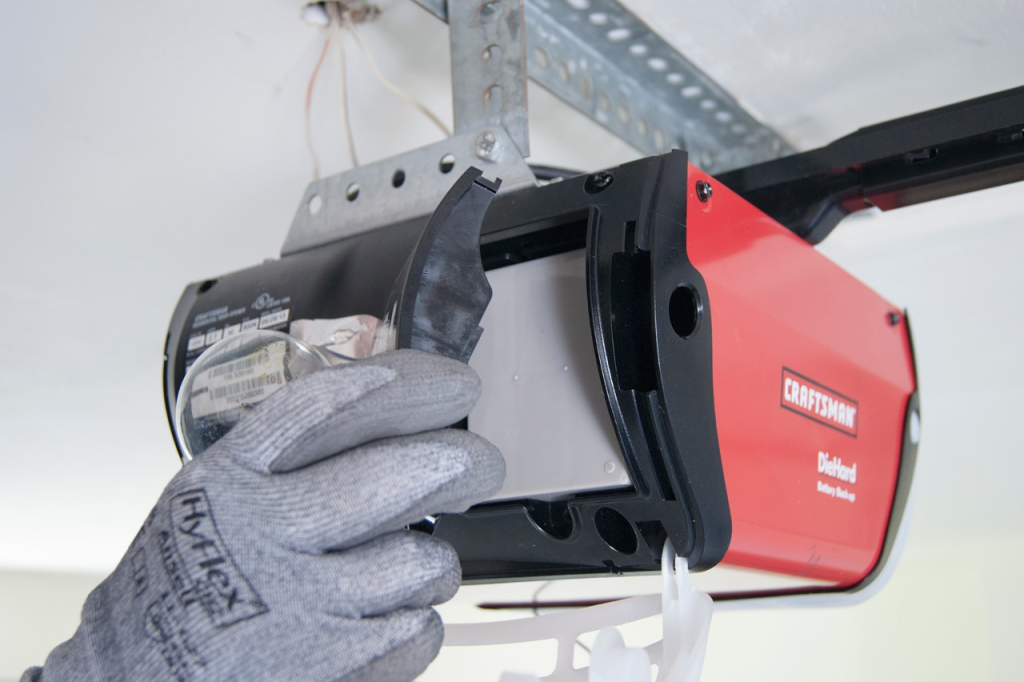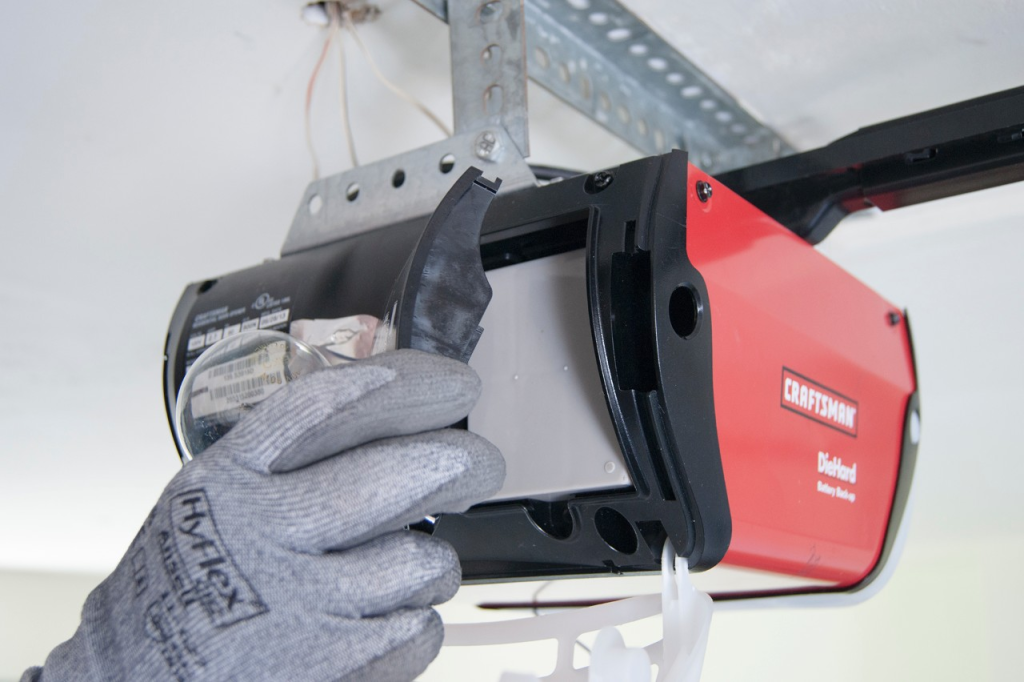The Craftsman 3/4 HP garage door opener is a reliable system for homeowners, known for its durability and convenience. However, like any electronic device, it relies on a functional battery for uninterrupted performance, especially for backup systems during power outages. If you’re facing issues like inconsistent operation or beeping alerts, it’s time for a Craftsman 3/4 HP garage door opener battery replacement.

In this guide, we’ll walk you through everything you need to know about replacing the battery in your Craftsman garage door opener, ensuring you maintain its efficiency and performance.
Why Replacing Your Garage Door Opener Battery Matters
Battery replacement is essential for several reasons:
- Ensuring Reliable Operation – The garage door opener works seamlessly with a fully charged battery.
- Backup Power – During power outages, the backup battery ensures you can still operate the door.
- Preventing Beeping Alerts – Some units beep to signal a low battery, which can be an annoyance if not addressed.
Read too: Craftsman Garage Door Opener Troubleshooting Won’t Close: Quick Fixes and Solutions
Signs You Need a Battery Replacement
Not sure if it’s time to replace the battery? Here are the common indicators:
- Frequent Beeping – The opener emits a warning sound indicating low battery power.
- Inconsistent Operation – The remote or wall-mounted control works intermittently.
- Power Outage Failure – The door doesn’t open during a blackout, signaling a dead backup battery.
Tools You’ll Need
Before starting, gather these tools and materials:
- Replacement battery (specific to your model, often a 12V battery).
- Screwdriver (flathead or Phillips).
- A clean, dry cloth for wiping contacts.
Step-by-Step Guide: Craftsman 3/4 HP Garage Door Opener Battery Replacement
Step 1: Identify the Type of Battery Needed
Most Craftsman 3/4 HP models use a 12V backup battery. Check your owner’s manual or the battery compartment for specifications.
Step 2: Locate the Battery Compartment
The backup battery is typically located inside the motor unit, which is mounted to the ceiling of your garage. Look for a panel on the side or back of the unit labeled “Battery Compartment.”
Step 3: Open the Battery Compartment
- Turn off the power to the garage door opener by unplugging it or switching off the circuit breaker.
- Use a screwdriver to remove the screws securing the battery compartment cover.
- Carefully open the cover to expose the battery.
Step 4: Remove the Old Battery
- Disconnect the battery wires by pulling off the terminals (note their positions for reinstallation).
- Gently remove the old battery and inspect the compartment for any corrosion or debris.
- Clean the compartment using a dry cloth to ensure proper connections.
Step 5: Install the New Battery
- Place the new battery in the compartment, ensuring it aligns correctly with the terminals.
- Connect the wires to the corresponding terminals (red to positive, black to negative).
- Ensure the connections are secure but avoid excessive force.
Step 6: Reassemble and Test the Opener
- Replace the battery compartment cover and tighten the screws.
- Restore power to the unit by plugging it back in or switching on the circuit breaker.
- Test the garage door opener to confirm everything is functioning properly.
Troubleshooting Common Issues
Even with a new battery, you may encounter some challenges. Here’s how to troubleshoot:
Beeping Continues After Replacement
- Ensure the new battery is correctly installed with secure connections.
- Check for firmware updates for your opener if it’s a smart model.
The Door Doesn’t Operate During Power Outages
- Confirm the replacement battery is compatible and fully charged.
- Inspect the wiring for any loose connections or damage.
The Remote or Wall Control Isn’t Working
- Reprogram the remote or wall-mounted control panel as per the user manual.
Maintenance Tips for Your Craftsman Garage Door Opener
- Regular Battery Inspections
Check the battery’s condition every 6-12 months to prevent unexpected failures. - Keep Spare Batteries
Store an extra battery for quick replacements. - Clean Contacts Periodically
Dust and dirt can interfere with the connection; clean the terminals regularly. - Check for Firmware Updates
Some Craftsman models offer software updates to enhance performance.
Benefits of a Functional Backup Battery
Having a fully operational backup battery ensures:
- Convenience – Reliable door operation during power interruptions.
- Enhanced Security – Preventing unauthorized access due to a non-functional door.
- Prolonged Device Lifespan – Reducing strain on the opener’s motor.
Frequently Asked Questions
1. How long does a Craftsman garage door opener battery last?
Typically, backup batteries last 2-3 years under normal usage.
2. Can I use rechargeable batteries?
For the backup system, use the recommended 12V battery for optimal performance. Rechargeable options may not provide consistent power.
3. What should I do with the old battery?
Dispose of the old battery at a recycling center or facility that accepts electronic waste.
Where to Buy Replacement Batteries
Replacement batteries for the Craftsman 3/4 HP garage door opener are widely available at:
- Online Retailers – Amazon, eBay, or Craftsman’s official website.
- Hardware Stores – Home Depot, Lowe’s, or local shops.
- Specialty Electronics Stores – Shops specializing in batteries and power supplies.
Why Choose Craftsman Garage Door Openers?
Craftsman garage door openers are designed for durability and efficiency. Features like battery backup systems, smart connectivity, and powerful motors make them a trusted choice for homeowners. Regular maintenance, including timely battery replacements, ensures your system continues to perform at its best.
Conclusion
Replacing the battery in your Craftsman 3/4 HP garage door opener is a straightforward task that significantly enhances the system’s reliability. By following this guide, you can confidently perform a Craftsman 3/4 HP garage door opener battery replacement, ensuring seamless operation and peace of mind. Regular maintenance, including checking and replacing the battery as needed, will keep your garage door opener functioning effectively for years to come.
























